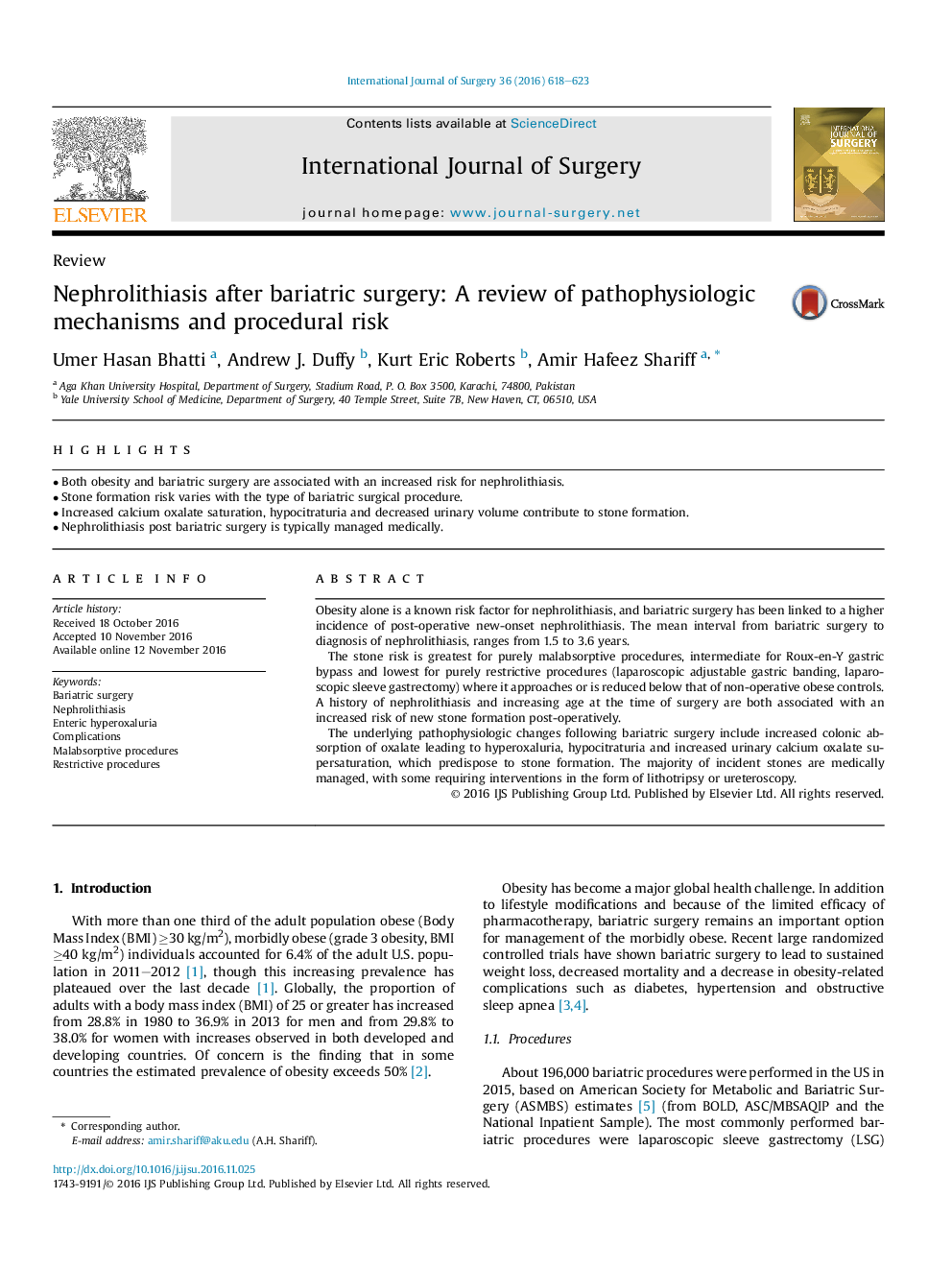| Article ID | Journal | Published Year | Pages | File Type |
|---|---|---|---|---|
| 5732426 | International Journal of Surgery | 2016 | 6 Pages |
â¢Both obesity and bariatric surgery are associated with an increased risk for nephrolithiasis.â¢Stone formation risk varies with the type of bariatric surgical procedure.â¢Increased calcium oxalate saturation, hypocitraturia and decreased urinary volume contribute to stone formation.â¢Nephrolithiasis post bariatric surgery is typically managed medically.
Obesity alone is a known risk factor for nephrolithiasis, and bariatric surgery has been linked to a higher incidence of post-operative new-onset nephrolithiasis. The mean interval from bariatric surgery to diagnosis of nephrolithiasis, ranges from 1.5 to 3.6 years.The stone risk is greatest for purely malabsorptive procedures, intermediate for Roux-en-Y gastric bypass and lowest for purely restrictive procedures (laparoscopic adjustable gastric banding, laparoscopic sleeve gastrectomy) where it approaches or is reduced below that of non-operative obese controls. A history of nephrolithiasis and increasing age at the time of surgery are both associated with an increased risk of new stone formation post-operatively.The underlying pathophysiologic changes following bariatric surgery include increased colonic absorption of oxalate leading to hyperoxaluria, hypocitraturia and increased urinary calcium oxalate supersaturation, which predispose to stone formation. The majority of incident stones are medically managed, with some requiring interventions in the form of lithotripsy or ureteroscopy.
